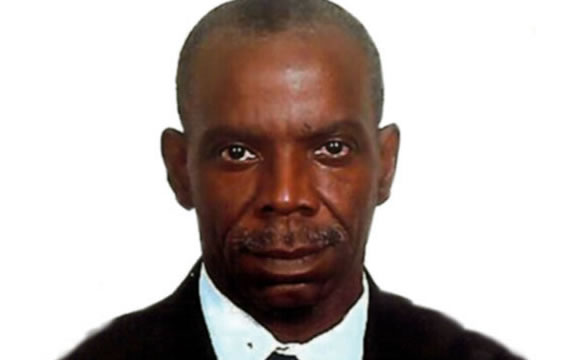
In an op-ed article on January 1, 1964, social activist and proprietor of Mayflower School in Ikenne, Ogun State, Dr Tai Solarin, wrote a New Year message to whomever it may concern to be prepared for existential realities.
His words: “I therefore repeat, may you have a hard time this year, may there be plenty of troubles for you this year,” which he justified as follows: “Our successes are conditioned by the amount of risk we are ready to take.”
Bola Tinubu, who said he asked to be President, while also insisting that fuel subsidy must go, Nigerians and foreign stakeholders should be prepared for the rough ride that Nigeria should have taken a long time ago.
While the President should find a way to return to prosperity, the 133 million citizens that are afflicted with multidimensional poverty, Nigerians too must be ready for the economic upheaval that will accompany the removal of fuel subsidy. The austerity measures that must come are going to be severe.
It is not reasonable that Nigeria spent close to N4.39tn or nearly $10bn on fuel subsidy in the 2022 financial year, as claimed by former Minister of Finance, Budget and National Planning, Zainab Ahmed.
Last week, Group Managing Director of the Nigerian National Petroleum Company Limited, Dr Mele Kyari, subtly reminded President Tinubu that the Federal Government still owes N2.8tn fuel subsidy that NNPCL defrayed on behalf of the government.
It is time to live up to the reality of a regime of austerity measures. When President Tinubu declared, “Fuel subsidy is gone,” as an ad lib to his inaugural speech, he spoke of the reality that he and everyone must confront.
And that reality dawned the morning after his speech. The fuel lines are the first symptoms of the series of challenges that Nigerians must endure and overcome before it gets better again. Sanusi Lamido Sanusi, ex-governor of the Central Bank of Nigeria, who later became Emir Mohammed Sanusi II, had warned that continued fuel subsidy policy would eventually lead to a huge debt burden.
The World Bank revealed that Nigeria spent 96.3 per cent of its revenue in 2022 on debt servicing, yet about half of its 2023 budget is going to be borrowed, if the lenders will oblige. In March 2023, China, which is getting loan-weary, turned down Nigeria’s request for about $22.8m loan application.
Those, like former minister Ahmed, who kept arguing that debt-to-Gross Domestic Product ratio is more preferable than debt-to-revenue ratio to assess Nigeria’s capability to service and pay off its debts, should be held responsible for former President Muhammadu Buhari’s unconscionable debt binge.
At her valedictory ceremony, Ahmed still insisted that “despite (obvious) revenue challenges, the government consistently met its debt service commitments, while post-financing assessments showed adequate capacity to repay loans.”
But when she admitted that, “We are struggling with being able to service debts… even though revenue is increasing, (while) expenditure has been increasing at a much higher rate (and) so it is a difficult situation,” you wonder what economic and financial parameters guided her thinking.
But you must also recognise that Nigeria is not exactly a poor country. The problem is the failure of its governments to find a way to enhance its revenue generation and block the obvious leakages.
Now everyone is going to ante up in paying up a debt they knew not how and why it was incurred. The explanations that the loans were acquired to pay for infrastructure and palliatives to vulnerable Nigerians is a laughable Trojan horse that pays for gluttonous big government.
The confusion caused by the greedy petroleum products marketers and the swift reaction of NNPCL to adjust petrol prices imposes some immediate imperatives on the President. In the face of the contrived artificial fuel scarcity that greeted his declaration, he must seize the moment.
The President must think of immediate-term palliative measures to take care of Nigerians who will be more vulnerable now that fuel subsidy “has gone,” even though it’s awfully difficult to define and determine what could be used as palliatives where the government itself is The last Minister of Humanitarian Affairs, Disaster Management and Social Development, Sadiyya Faruq, made the idea of palliatives look like an unserious business. The uneven distribution of COVID-19 pandemic palliatives was discouraging.
Yes, the President must continue the politically correct dialogue that he is having with the toothless bulldog trade unions that were also being politically correct, before they caved in and called off their ill-advised strike.
He also needs to consult his constitutional lawyers to know if NNPCL could unilaterally scrap the fuel subsidy that was supposed to be effective on July 1, 2023 after budgetary provisions would have expired.
Kyari claims that there has been no cash backing for the N3.7tn fuel subsidy provision in the 2023 budget. He said, “(Though) the provision of (fuel) subsidy is (in the 2023 budget), but absolutely there is no funding for it!”
Because of Kyari’s indirect admission that NNPCL didn’t wait till July 2023 before adjusting its pricing to reflect market realities, it is safe to speculate that NNPCL has been using gains from selling crude petroleum to defray downstream fuel subsidy.
If Kyari can’t do it, the President must urgently get an expatriate to either efficiently run the four government-owned refineries that former President Olusegun Obasanjo thinks have gone past their sell-by dates, or build up new refineries.
The artificial fuel scarcity that usually greets every speculation about anticipated changes in government policy or the approach of festive seasons, like Christmas or any of the Muslim eids, won’t end, until local refineries run optimally.
Maybe Nigerians need to be reminded that before the maximum ruler, Sani Abacha, resorted to importing petroleum products in response to the lockdown by the Nigeria Union of Petroleum and Natural Gas Workers, in the wake of the June 12 crisis, there had been fuel crises.
Recall the asinine policy of the administration of military President Ibrahim Babangida that designated certain petrol stations to sell petrol to private vehicles at a higher price, while other petrol stations were dedicated to selling petrol to commercial vehicles at a lower price. It was so ridiculous.
The President must check pipeline vandalism and oil bunkering by getting the Chief of Defence Staff and the service chiefs, or their replacements, to commit to ending the virulent economic sabotage immediately.
He should quickly come up with an ambitious plan to ramp up electricity production for the homes and businesses of Nigerians and foreign direct investors. Therein lies the redemption for Nigeria’s economy– in the medium to long-term.
The salary increase that the labour unions and government functionaries are talking about may not exactly solve the problem. The ripple effect may lead to inflation that will gobble up the gains. Those who think for this government must instead look toward addressing the urgency of collapsing the foreign exchange regime into one.
The President must assemble professionals who are savvy in monetary policy matters to sit down with CBN’s Governor Godwin Emefiele, or his successor, to finagle a realistic single foreign exchange regime.
That looks like the quick fix silver bullet for this import-oriented economy, even as the road may be rough in the meantime.




